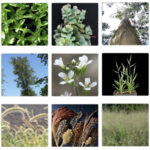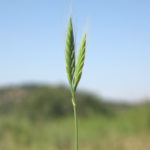To provide broad plant genomic capabilities, the DOE Joint Genome Institute works in partnership with the HudsonAlpha Institute for Biotechnology, which specializes in genome improvement for plants. As part of that partnership, the JGI and HudsonAlpha researchers led a team that recently published work on the JGI Plant Gene Atlas in Nucleic Acids Research. Learn more on the JGI website.
JGI Helps Make Case for Plant Pan-genomes
Flowering plants abide by the concept, “the more the merrier,” with respect to their genomes. In their base state, they are diploids with two genome copies, one from each parent. Having three or more genome copies from additional parents or duplication, also known as “polyploidy,” is common amongst flowering plants. Crop breeders have harnessed polyploidy to increase fruit and flower size, and confer stress tolerance traits. In Nature Communications, a multi-institutional team led by researchers at Spain’s Universidad de Zaragoza and the DOE Joint Genome Institute (JGI) relied on a model grass system (Brachypodium) to learn more about the origins, evolution and development of plant polyploids. Read more on the JGI website.
Was this page useful?





